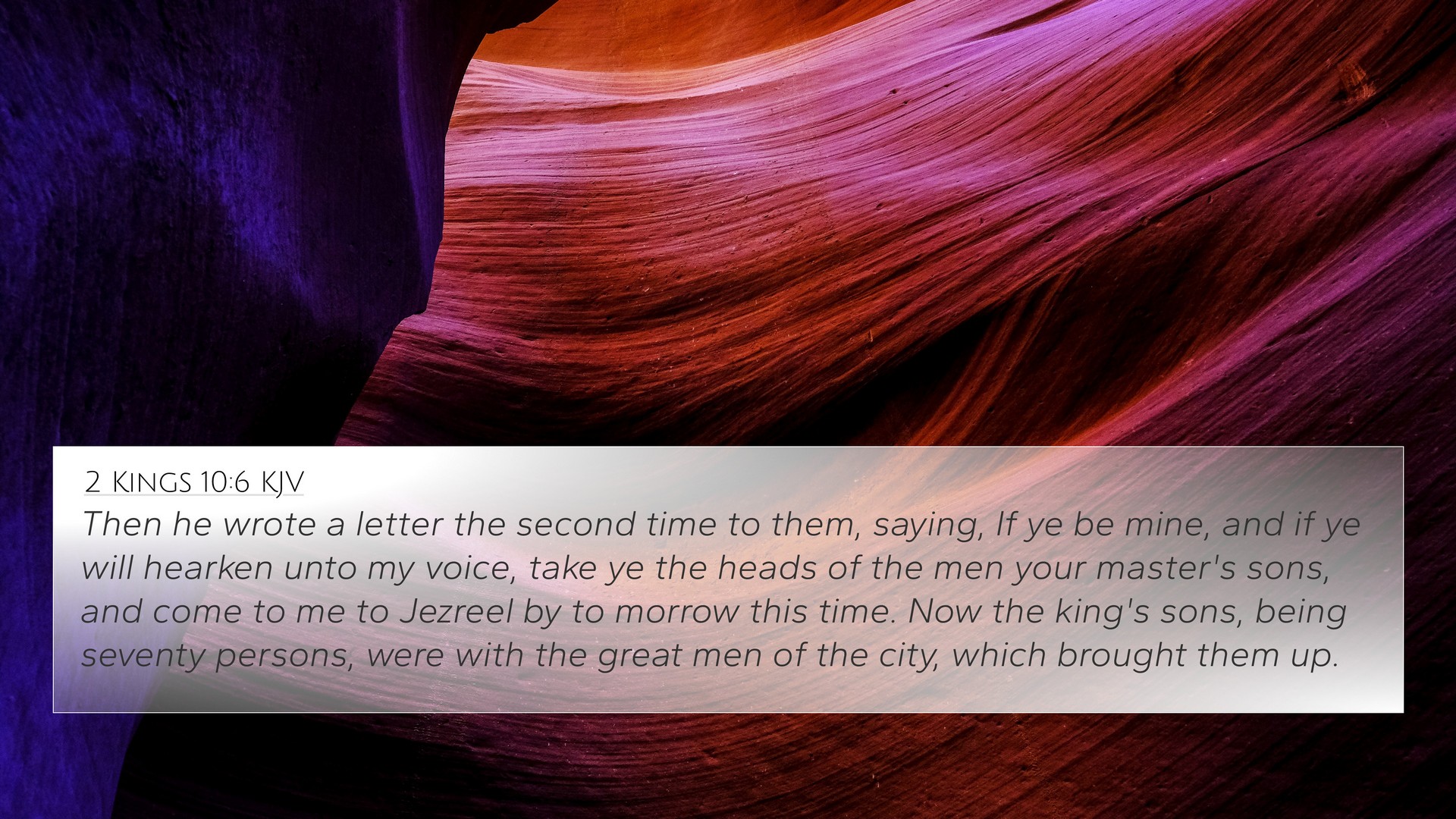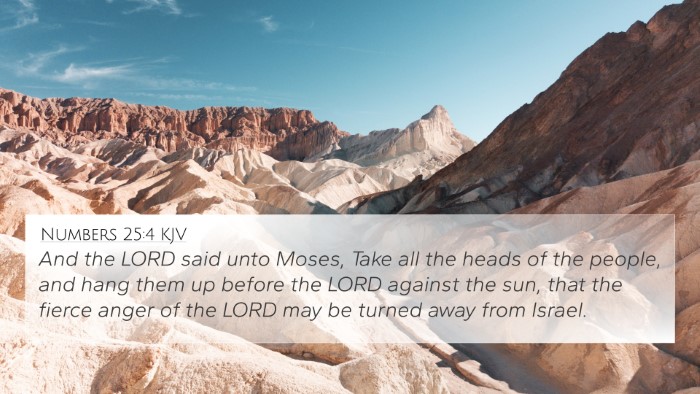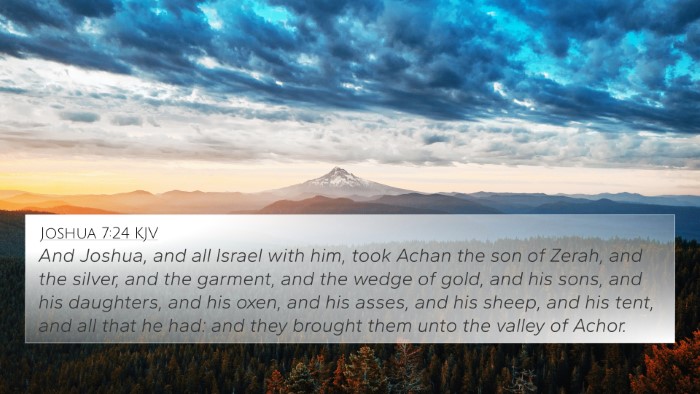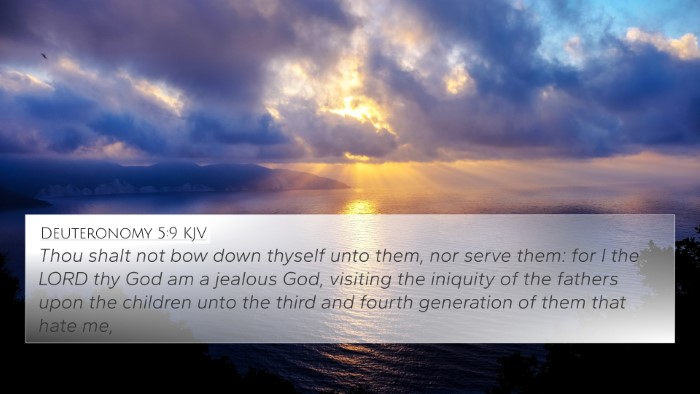Understanding 2 Kings 10:6
In this verse, we see a significant moment in the history of Israel during the reign of Jehu. The context is that Jehu is consolidating his power after being anointed king, and the request made through the letter signifies a time of reckoning and accountability. This verse can be perplexing, as it deals with themes of divine judgment, leadership, and the cost of discipleship.
Verse Overview
2 Kings 10:6 reads:
"Then he wrote a second letter to them, saying, 'If you are for me, and will listen to my voice, take the heads of the men, your master's sons, and come to me at Jezreel by this time tomorrow.' Now the king's sons, seventy persons, were with the great men of the city, who were rearing them."
Commentaries Insights
-
Matthew Henry:
Henry emphasizes the seriousness of Jehu's demand and the implications of siding with him. He highlights that true allegiance comes with a cost and that those who follow God's anointed must be prepared to act decisively against evil.
-
Albert Barnes:
Barnes focuses on the political maneuvering in this passage. He points out that Jehu’s message serves as an ultimatum, illustrating the drastic measures sometimes required to fulfill God’s plans and eliminate idolatrous influences in Israel.
-
Adam Clarke:
Clarke remarks on the nature of Jehu’s leadership and the fulfillment of prophecy. He indicates that this plot was not only political but divinely orchestrated to remove the house of Ahab, showing God's judgment on idolatry through appointed authority.
Thematic Connections
When considering 2 Kings 10:6, several key themes emerge, including:
-
Allegiance: The verse challenges readers to consider their loyalty. The call to action presented in the letter reflects a broader biblical principle regarding choosing sides in matters of faith.
-
Divine Judgment: Jehu’s actions were part of God’s judgment on Israel for their sins. It underscores a recurring theme in the Bible where God uses leaders to enact His will.
-
Leadership Accountability: The text speaks to the responsibilities leaders have towards their followers and the serious consequences of leading in a manner contrary to God’s commands.
Cross-References to Other Verses
This verse can be cross-referenced with the following passages:
- 1 Kings 19:16: This reference highlights God's directive to anoint Jehu as king, establishing the background to Jehu's authority.
- 2 Kings 9:6-10: Jehu's anointing and calling to judgment against the house of Ahab are established here.
- 2 Chronicles 22:8-9: The context of God's judgment and the fall of Ahaziah connects with Jehu’s reign and actions.
- Hosea 1:4: This verse speaks about the judgment against the house of Jehu, illustrating the ongoing theme of consequences resulting from leadership.
- Matthew 10:34: Jesus speaks about coming to bring division, paralleling the call in 2 Kings to separate from evildoers.
- John 15:18-19: The concept of the cost of discipleship mirrors the expectations placed on the followers of Jehu.
- Galatians 6:7: "A man reaps what he sows" aligns with the accountability theme found within Jehu's reign and the fate of Ahab's family.
Conclusion
2 Kings 10:6 serves as a powerful reminder of the serious nature of God's work through appointed leaders, the expectations of loyalty, and the impact of one's choices in relation to divine judgment. Understanding these themes allows readers to grasp the complexities of biblical leadership and the weighty decisions faced by those in authority.
Further Study Insights
For those looking to delve deeper into the connections between this verse and the broader biblical narrative, tools for Bible cross-referencing such as concordances and thematic studies enhance one's comprehension. Exploring scriptural cross-referencing can shed light on how Old and New Testament verses relate and support each other, revealing the unified message of the Bible.












